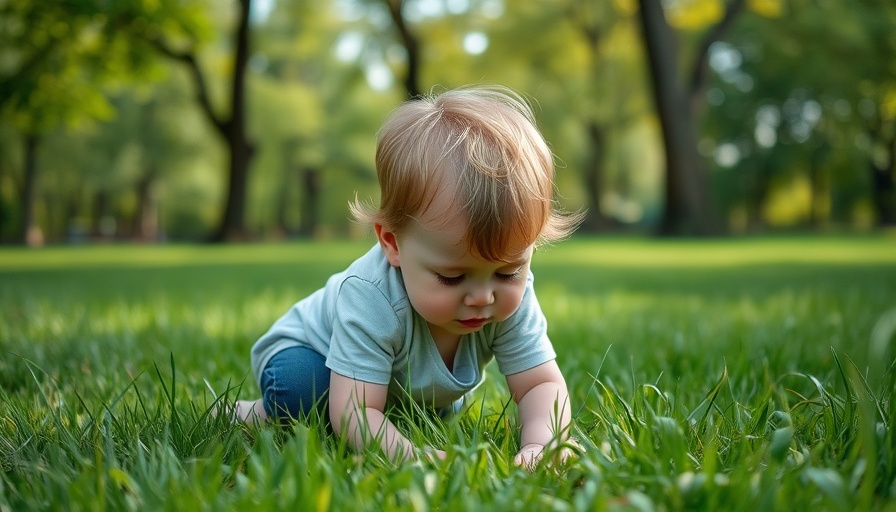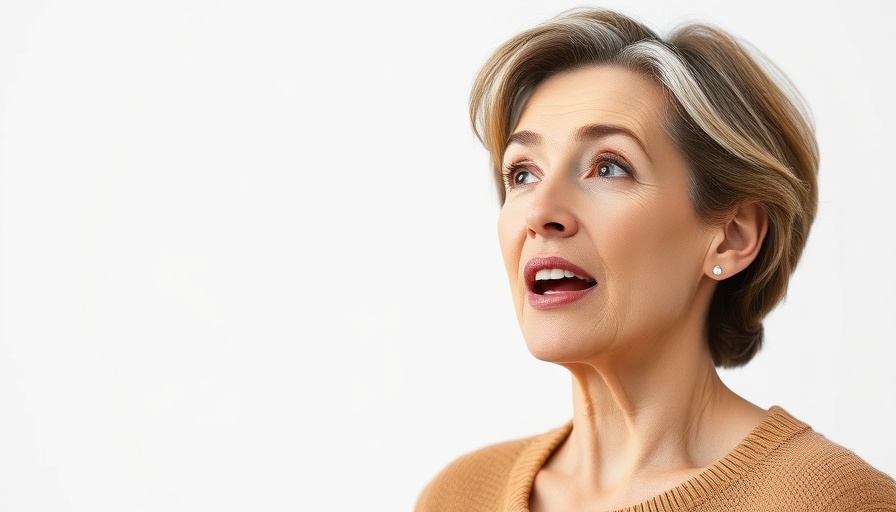
Understanding the Reality of ADHD: A Closer Look
The question of whether ADHD (Attention Deficit Hyperactivity Disorder) is real has sparked debates among health professionals, educators, and families alike. Many may have encountered the term 'ADHD' in relation to children, but it’s important to recognize that this condition also affects adults, including middle-aged and senior individuals. While ADHD is often characterized by symptoms such as inattention, hyperactivity, and impulsivity, understanding the neurological differences in an ADHD brain can help demystify the condition for those who may be skeptical or misinformed.
In 'Is ADHD Real? Difference in the ADHD Brain,' the discussion dives into the legitimacy of ADHD, exploring key insights that sparked deeper analysis on our end.
Is ADHD Just a Modern Trend?
Some people believe that ADHD is just a modern affliction, often attributing it to societal changes, technology, or parenting styles. However, research indicates that ADHD is a well-documented neurodevelopmental disorder. Studies suggest that it has been recognized for decades, with symptoms manifesting in various ways across different age groups. The prevalence of ADHD in adults may be less discussed, leading some to think it’s a child-only condition. This misconception can hinder understanding and support for those affected by it.
Life With ADHD: What It Really Feels Like
For those living with ADHD, daily life can pose unique challenges. Imagine trying to focus on a task while your mind races through multiple thoughts—this is a reality for many. It’s not merely a lack of discipline or focus; ADHD is often tied to brain structure and function. Neuroimaging studies have shown that individuals with ADHD may have differences in brain areas that regulate attention and impulse control. Recognizing this condition as legitimate can open avenues for emotional and psychological support.
Practical Mental Health Techniques for Seniors
For middle-aged and senior individuals managing ADHD or simply looking to maintain mental wellness, integrating practical mental health techniques can enhance quality of life. Simple yet effective strategies include:
- Mindfulness Meditation: This practice encourages being present and aware of surroundings, helping individuals manage overwhelming thoughts and emotions.
- Stress Relief Exercises: Regular physical activity, even mildly such as walking or gentle yoga, can alleviate stress levels and improve overall mood.
- Sleep Hygiene Techniques: Keeping a consistent sleep schedule and creating a calming bedtime routine can aid those struggling with sleep disturbances often associated with ADHD.
Natural Remedies: Are They Effective?
Many individuals are turning to natural remedies for managing ADHD symptoms, especially those who prioritize holistic living. Supplements such as omega-3 fatty acids, often found in fish oil, have been studied for their potential benefits in enhancing brain function and mood. Herbs like ginkgo biloba and ginseng may also support mental clarity and reduce anxiety when appropriately used. Always consult healthcare professionals before starting any new supplement regimen.
Social Connections and Support Systems
A strong support system is crucial for anyone managing ADHD, especially seniors who might be navigating multiple life adjustments. Engaging with supportive communities, whether in-person or online, can provide encouragement, understanding, and resources. Such connections can reduce feelings of isolation and provide a safe space for sharing experiences and coping strategies.
Future Predictions and Trends in ADHD Awareness
The conversation surrounding ADHD continues to evolve. With increased awareness and understanding of mental health, many experts predict a more significant focus on adult ADHD, including tailored strategies for seniors. The expansion of mental health resources and community programs will likely play a pivotal role in promoting mental wellness among aging populations.
Final Thoughts: Embracing a Healthier Future
Understanding ADHD and its implications is essential for enhancing mental health and overall well-being. As we continue to unravel the complexities of the ADHD brain and improve our mental health routines with mindfulness, relaxation techniques, and community support, we can help foster a more accepting environment for those affected. Remember that it's not just about management but connecting with your mind and body to embrace a healthier, happier lifestyle.
 Add Element
Add Element  Add Row
Add Row 



Write A Comment